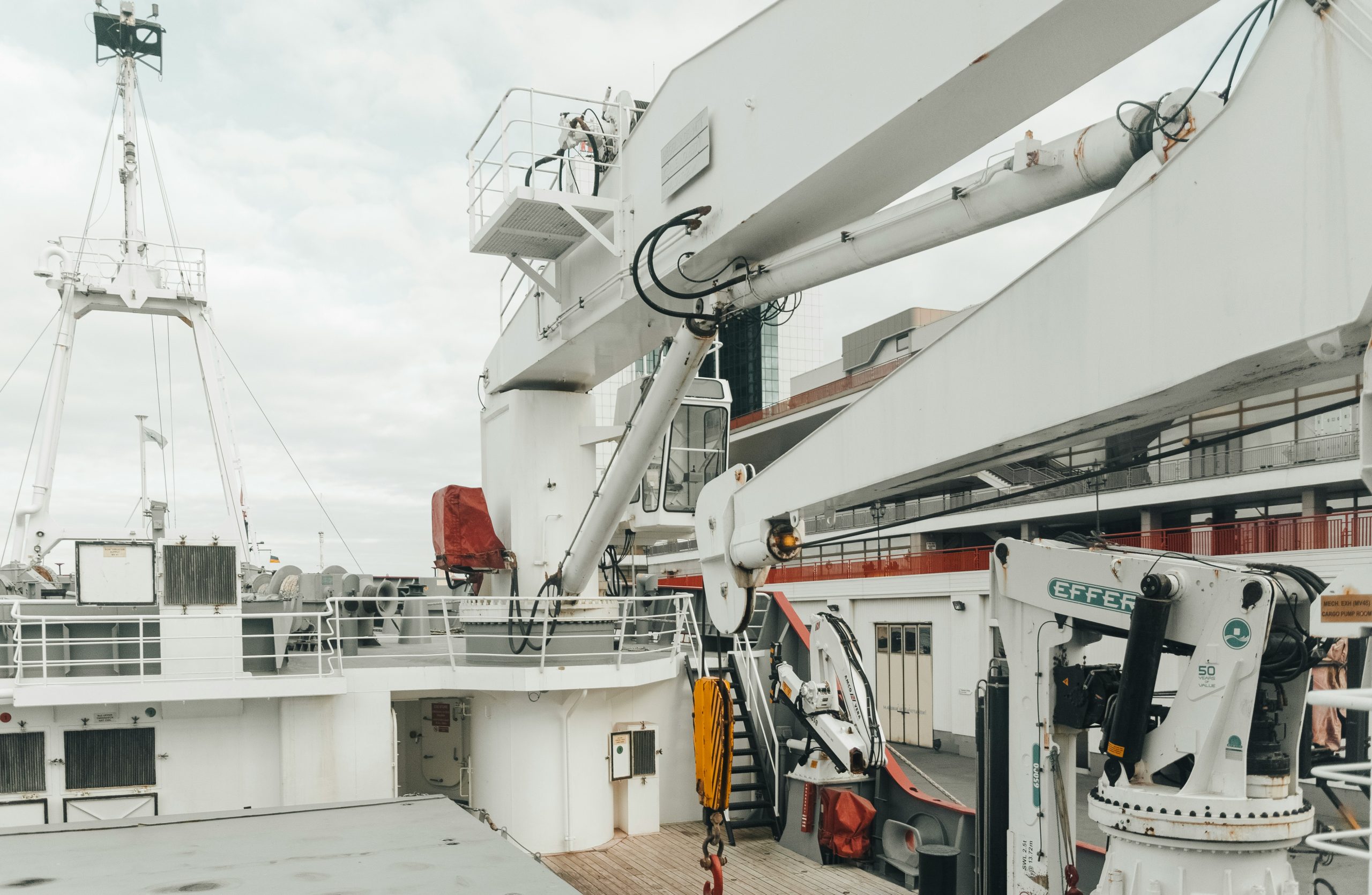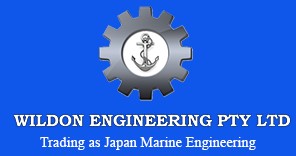Choose the Right Deck Crane: Main Factors to Consider for Your Vessel
Blog | April 10th, 2024
Select the perfect deck crane for your marine vessel to ensure safety and efficiency. Available at Wildon Engineering, achieve optimal performance onboard.
When outfitting a vessel, you must always select the right deck crane. Whether for commercial purposes or leisurely adventures, the right deck crane must be present to facilitate various onboard operations including loading and unloading cargo as well as handling equipment.
The Basics of a Deck Crane
Deck cranes are essential equipment onboard vessels, facilitating various tasks such as cargo loading and unloading, equipment handling, and even personnel transfer.
The boom is the primary structural element of the crane, extending horizontally from the base. It provides the reach needed to lift and move loads across the deck or over the side of the vessel. The jib is an optional extension of the boom, which is particularly useful for reaching into confined spaces or lifting loads to greater heights.
The hoist is the lifting mechanism of the crane. It helps raise and lower the load attached to the crane’s hook or lifting attachment. The slewing mechanism, alternatively, allows the crane to rotate horizontally, providing 360-degree coverage of the deck or working area.
All these components are operated using a control system.
Major Factors to Consider
Today, many deck crane options are available in the market. Hence, choosing the perfect one can be daunting and challenging. When picking one, here are some factors you must consider.
• Vessel Size and Type: Vessels come in various sizes and designs, each with unique specifications and requirements. Hence, you must assess the dimensions and weight-bearing capacity of your vessel to determine the appropriate crane size and configuration needed to meet your needs.
• Operational Environment: Factors such as weather conditions, sea state, and exposure to corrosive elements can impact the performance and longevity of the crane. Therefore, you must choose a crane constructed from durable materials to withstand harsh marine environments and ensure long-term reliability.
• Reach and Outreach: The reach and outreach of a deck crane determine its ability to access various areas of the vessel and handle loads efficiently. You must consider the layout of your vessel and the specific locations where you’ll require crane operations. Go for a crane with sufficient reach and outreach capabilities to access tight spaces and reach overboard safely and stably.
• Lifting Capacity: Another primary consideration when choosing a deck crane is its lifting capacity. You must evaluate the maximum weight that the crane needs to lift regularly, including cargo, equipment, and other loads. You should select a crane with a lifting capacity that exceeds your heaviest anticipated load to ensure safety and prevent overloading.
• Power Source: Deck cranes can be powered by various sources, including hydraulic, electric, or manual operation. Consider the power source that best aligns with your vessel’s infrastructure and operational requirements. Hydraulic cranes are popular for their robust performance and versatility, while electric cranes offer quieter operation and reduced maintenance needs.
• Safety Features: Safety should always be a top priority when selecting a deck crane for your vessel. Look for cranes equipped with essential safety features. Additionally, ensure that the crane complies with relevant safety standards and regulations to minimise the risk of accidents and injuries during operation.
Choosing the right deck crane for your vessel requires careful consideration of various factors. By working with Wildon Engineering, we can help you provide a crane that enhances the efficiency, safety, and performance of your vessel.
Optimized by NetwizardSEO.com.au
Recent Posts
- Yanmar Marine Compressors: Applications in Engine Starts, Valves, and Safety Systems
- Water vs Oil in Stern Tube Bearings: The Cost & ESG Truth Shipowners Can’t Ignore
- Yanmar Turbochargers: How Correct Spec-Matching Supports Lower SFOC and Prevents Surge
- Yanmar Diesel Generators: Planned vs Predictive Maintenance Strategies for Remote Operations
- Mareflex SOLAS Marine Tapes: Safety Applications on Marine Vessels
- Yanmar Propulsion Systems: FPP vs CPP Propellers for 6EY and 6N Series Fuel Efficiency
- Mitsubishi K.K. Purifier Separator: The Key to Cleaner Fuel and Smoother Operations
- Kemel Air Seal Retrofits: Leak-Free Stern Tube Seals and Reduced Lube-Oil Risk
- Yanmar Auxiliary Generators: Sizing for Reefers, Hotel Loads, and Dynamic Positioning Systems
- Water Lubricated Stern Tube Bearing (EVR): Proven Technology for Smooth and Quiet Operations
